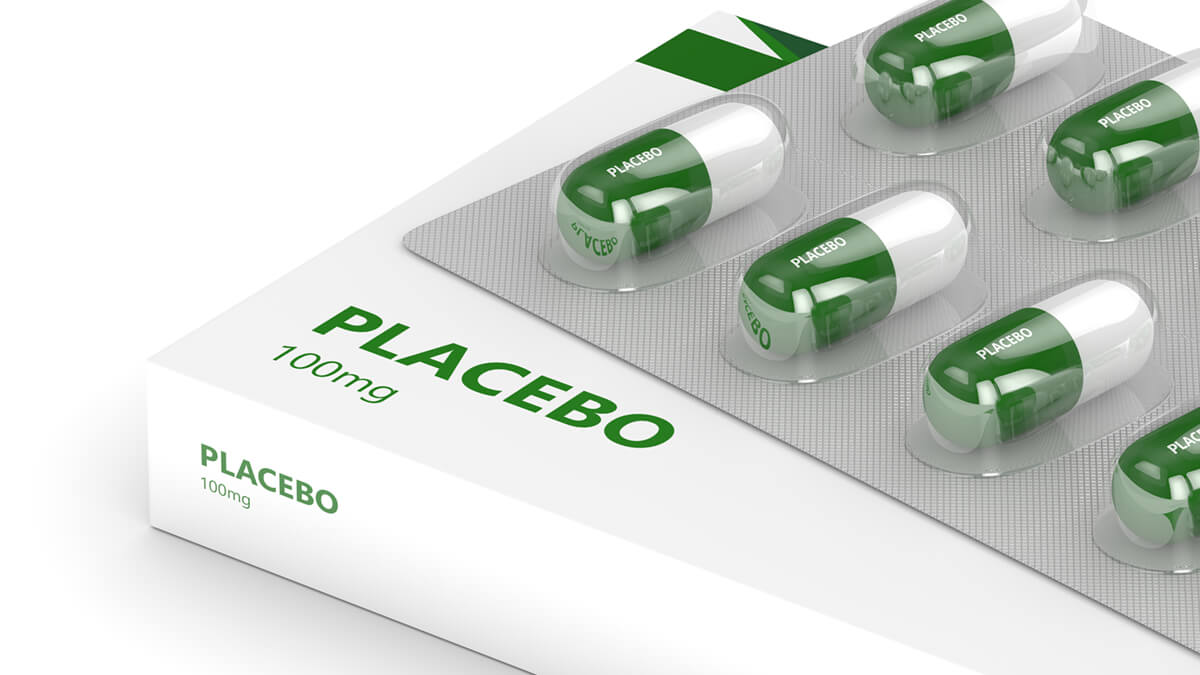Scientists have known about the so-called placebo effect for well over 200 years.1 But research into this strange quirk of medicine is hardly complete. Most recently, clinical psychologists have been looking into how the placebo effect might play into treatments for psychological disorders such as anxiety and depression. It’s a fascinating avenue of research that anyone thinking about a career in psychology should be aware of.
What Is the Placebo Effect?
The placebo effect begins with a placebo, which is a harmless pill, injection, or medical procedure that mimics a real medicine or procedure. Placebos are most commonly used to test new pharmaceuticals. A control group is given a pill/injection with no therapeutic benefit while the treatment group is given the actual medicine being tested. This allows researchers to better isolate the specific effects and side effects of new pharmaceuticals.
Sometimes, however, something strange happens when people receive a placebo: they report improvement of their condition. This doesn’t happen with conditions that can be easily measured (like high cholesterol or the size of a tumor), but it does happen with conditions that are affected by perception, such as pain, stress-related insomnia, and cancer treatment side effects like fatigue and nausea.2
Plenty of psychology studies have looked into why this happens, with the most common theory being that our expectation for improvement alters our perceptions of discomfort and can even activate areas of the brain associated with things like pain control.3 However, the placebo effect still isn’t fully understood, which means scientists are continuing to discover what conditions it can affect and to what degree.
Is There a Placebo Effect in Depression and Anxiety Treatment?
Pharmaceuticals that help alleviate depression and anxiety have improved the lives of countless people. It’s undisputed that they work. However, what’s less understood is what role the placebo effect may play. Are antidepressants doing all the heavy lifting, or is there more to people’s improved moods?
Studies have shown that when people who are suffering from major depression are given a placebo that they believe is a fast-acting antidepressant, they are more likely to report significant decreases in their depression than are those who know they’re taking a placebo.4 While this finding in no way suggests antidepressants are less effective than previously thought, it does suggest that a person’s state of mind is intricately interwoven with their mood. This, in turn, suggests that the non-medicinal treatments of clinical psychology (i.e., therapy) can and should play an important role in treating major depression.
Can Placebos Have a Negative Effect in Psychological Treatment?
The placebo effect isn’t always positive. For instance, if someone is told a pill may cause nausea, they’re more likely to experience nausea than someone who isn’t told the pill may cause nausea, even if the pill is a placebo.5 Some call this the nocebo effect. And it has shown up in studies of depression.
In one recent study, participants took a fake DNA test (the placebo) that they were told would screen them for the genetic characteristics of depression. Those who were told their results included a gene for depression scored poorer on a mood-regulation test than those who were told they didn’t have the gene.6 While there’s hope that DNA tests can eventually help people learn about and better treat disorders like depression, the placebo study suggests that simply discovering you have a predisposition for a condition may make you more likely to experience symptoms, which isn’t helpful to anyone.
How Can You Help People With Psychological Disorders?
If the placebo effect teaches us anything, it’s that our perceptions matter a lot. Which is why, if you want to help people cope with psychological issues, you should consider enrolling in a clinical psychology program. Specifically, a PhD in Clinical Psychology can help you can gain the skills to assess mental wellness and provide interventions as a practitioner, educator, researcher, or consultant.
While completing a doctorate in psychology might seem as if it will overly disrupt your life, online education offers opportunities to earn an advanced psych degree while still working full time. Walden’s PhD in Clinical Psychology program makes this possible by blending in-person course components with online coursework you can complete from home and on a flexible schedule designed to fit with busy lives.
Those suffering from depression, anxiety, and other mental illnesses need clinical psychologists qualified to help. With Walden’s PhD in Clinical Psychology degree program, you can become qualified to help.
Walden University is an accredited institution offering a PhD in Clinical Psychology degree program. Expand your career options and earn your degree in a convenient, flexible blended format that fits your busy life.
1Source: www.sciencedirect.com/science/article/pii/S0965229912000866
2Source: www.health.harvard.edu/mental-health/the-power-of-the-placebo-effect
3Source: www.psychologytoday.com/us/blog/straight-talk/201401/its-all-in-your-head-or-is-it
4Source: www.nih.gov/news-events/nih-research-matters/placebo-effect-depression-treatment
5Source: www.smithsonianmag.com/science-nature/what-is-the-nocebo-effect-5451823
6Source: www.yalescientific.org/2018/04/know-too-much
Walden University is accredited by The Higher Learning Commission, www.hlcommission.org.




